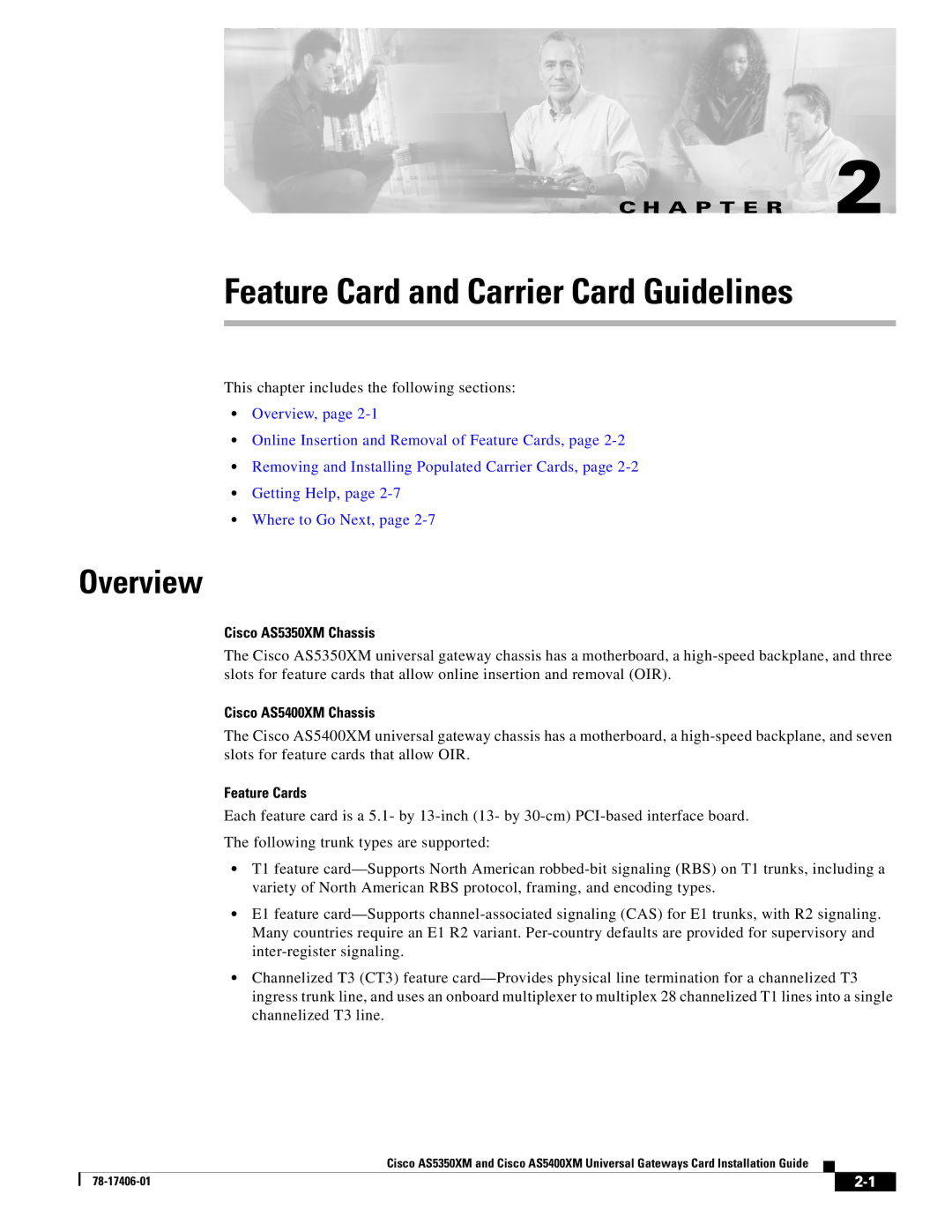C H A P T E R 2
Feature Card and Carrier Card Guidelines
This chapter includes the following sections:
•Overview, page 2-1
•Online Insertion and Removal of Feature Cards, page 2-2
•Removing and Installing Populated Carrier Cards, page 2-2
•Getting Help, page 2-7
•Where to Go Next, page 2-7
Overview
Cisco AS5350XM Chassis
The Cisco AS5350XM universal gateway chassis has a motherboard, a high-speed backplane, and three slots for feature cards that allow online insertion and removal (OIR).
Cisco AS5400XM Chassis
The Cisco AS5400XM universal gateway chassis has a motherboard, a high-speed backplane, and seven slots for feature cards that allow OIR.
Feature Cards
Each feature card is a 5.1- by 13-inch (13- by 30-cm) PCI-based interface board.
The following trunk types are supported:
•T1 feature card—Supports North American robbed-bit signaling (RBS) on T1 trunks, including a variety of North American RBS protocol, framing, and encoding types.
•E1 feature card—Supports channel-associated signaling (CAS) for E1 trunks, with R2 signaling. Many countries require an E1 R2 variant. Per-country defaults are provided for supervisory and inter-register signaling.
•Channelized T3 (CT3) feature card—Provides physical line termination for a channelized T3 ingress trunk line, and uses an onboard multiplexer to multiplex 28 channelized T1 lines into a single channelized T3 line.
Cisco AS5350XM and Cisco AS5400XM Universal Gateways Card Installation Guide

